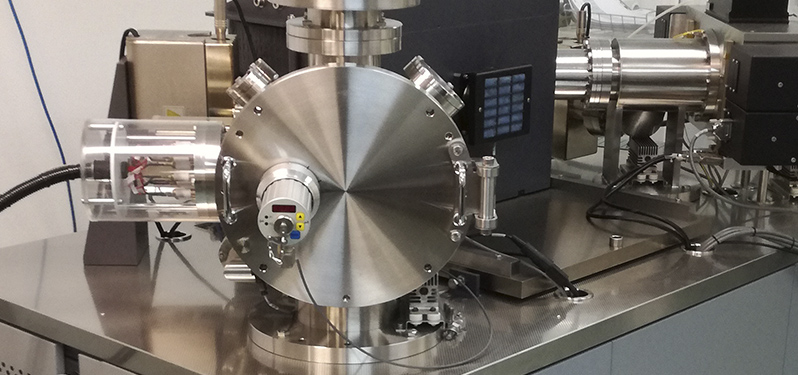Discover the two Thermo Ionization Mass Spectrometers of the Geochronology Service (UCM)
The Geochronology Service (CAI of Earth Sciences and Archaeometry), located in the Faculty of Geological Sciences, has two thermal ionization mass spectrometers (TIMS) dedicated to the analysis of isotope ratios of radiogenic elements in geological and archaeological samples.
TIMS (Thermal Ionization Mass Spectrometry) is a technology designed for the analysis of the relative abundances of the isotopes from the element of interest. This analysis is carried out by producing from a sample positive ions on a metal filament that are directed towards a uniform magnetic field, which acts as a mass analyser, where they are divided into isotope beams as a function of its mass and whose abundance is measured in detectors with a very high signal amplification.
This method has traditionally been used for geochronological dating in geological samples by analysing their isotopic composition of certain radiogenic elements (Sr-Rb, Sm-Nd, common Lead, etc.). The physical-chemical and isotopic characteristics of this radiogenic elements make them suitable for obtaining a reliable and reproducible absolute age. Moreover, these isotope ratios suppose the basis of the isotope geochemistry, providing information about the origin of the materials, the processes involved in their genesis and the characteristics of the fluids. It is also relevant the significant information about the provenance of archaeological artefacts (e.g. glasses, arrowheads…), the behaviour of ancient communities (sedentary or nomads) by studying their feet and bones, among other applications.
The high precision achieved by this instruments is largely due to a previous phase of chemical sample preparation and chromatographic separation, as well as to an exhaustive statistical treatment of the results obtained throughout the systematic analysis of up to 160 replicas over the same sample.


